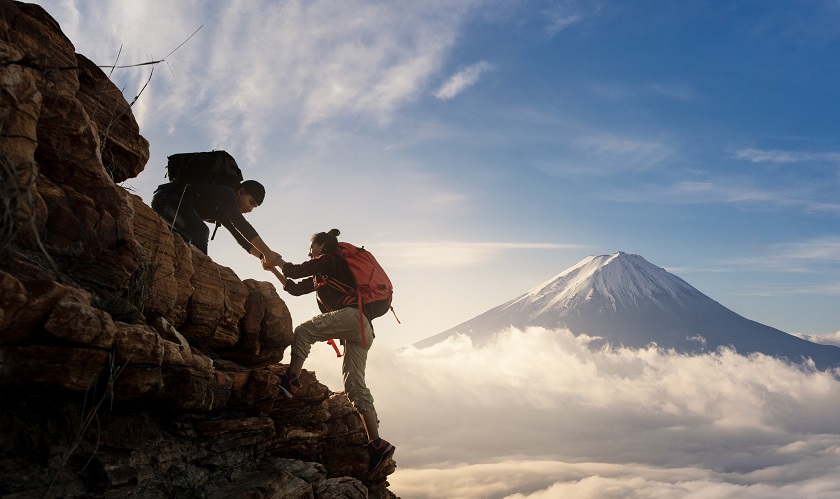Despite their ancient roots, the Olympic Games are constantly changing. Sometimes the changes reflect the emergence of new sports and competitions; other changes are an attempt to capture new or rising interest in a sport. In the case of sport climbing, a surge of global interest and enthusiasm has helped lead to its inclusion in the 2020 Tokyo Olympics.
What Is Sport Climbing?
Sport climbing typically consists of competitions where athletes climb artificial walls via specific, pre-designated routes.
These walls can have a variety of holds, all designed with an eye towards presenting a challenge that singles out the best climbers. Sports climbing can be generally broken down into three primary events.
-
- Lead Climbing: Lead climbing as a sport focuses on presenting a climber with a long route that they must climb while utilizing preset anchors at intervals along the way in order to attach themselves. The event is aimed at testing both endurance and technical skill, as climbers are pushed for an extended period of time.
- Bouldering: Typically seen as a more modern form of climbing, bouldering is essentially stripping rock climbing down its most essential elements. Ropes and harnesses are left behind, replaced by shorter courses and pads to help break shorter falls. Climbers are tasked with scaling these shorter courses in a limited period of time while navigating through a series of “problems.” This uniquely challenges the climber’s technique, balance, and physical strength.
- Speed Climbing: Speed climbing, as the name implies, is focused not on physical impediments along the climbing route, but rather on pure, unadulterated speed. A standardized climbing wall is used with a specific route that provides consistency for all participants. This leaves the one varying factor of the speed of the climb itself, which is the central competitive element of the event.
Why Is Sport Climbing in the 2020 Olympics?
Why has sports climbing suddenly been deemed worthy of inclusion in the 2020 Summer Olympics? In fact, if it’s been around for so long, why isn’t climbing in the Olympics already?
The answer comes in the form of good old-fashioned popularity. Simply put, sports climbing has become incredibly popular in recent years, with 43 new gyms being built in the U.S. in 2017 alone. The rate of growth between 2012 and 2017 averaged at 3.9%, coming in at 39% larger than the average growth of stereotypically popular health trends like gyms and fitness clubs during that same time.
Clearly climbing has been trending upwards in popularity. Much like snowboarding before it, the rise in interest and competition surrounding the activity has made sport climbing at the Olympics a natural progression. The question, then, wasn’t one of “if,” but rather of “when,” with the Tokyo Olympics providing the answer.
Rock Climbing Olympics Format
The International Federation of Sports Climbing (or the IFSC for short) has traditionally created three different events, one associated with each sport climbing discipline, allowing athletes to choose which ones they wish to participate in.
However, climbing in the 2020 Olympics is going to take a slightly different approach. While it will feature all three disciplines, climbers won’t have a choice to participate in one over the other. Instead, all climbers will be required to do lead climbing, bouldering, and speed climbing to participate.
This has sparked a certain amount of controversy, as some have voiced objections to the concept of having a bouldering specialist, for example, be required to climb a speed course as well. It would be akin to requiring a 100-meter dash participant to also run a marathon or a steeplechase horse compete in a pure speed race. The skill sets required for bouldering versus speed can be dramatically different and could naturally put certain climbers at a disadvantage.

Supporters of the combined format fact that having everyone compete in all three competitions will be beneficial to audiences as a whole. They assert that it can help bring more attention and interest to the brand new competition and help to establish Olympic climbing for the long term.
How to Watch Climbing in the Tokyo Olympics
You can always hope for decent coverage of Olympic rock climbing on the television. However, the fact that it’s a brand new event makes it difficult to predict how much attention it will actually get compared to other more established contests, which is why counting on watching sports climbing via filmed coverage may not be the best overall option.Attending the Olympics themselves is the best way to be sure to see all of the climbing competitions in real-time. If you’re planning on attending the Tokyo 2020 Olympics, you can always get a Japan Rail Pass in order to ensure that you have quick and easy transportation to each event. That way you can make sure to catch every moment of the action as it unfolds.




